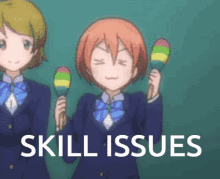
TIPIf you want to use another language, please use the translation feature in your browser.

Opening…
Have you ever felt like you have to know this and that… with a fear of missing out?
You feel bad if you can’t do “this,” even though you don’t like it at all and it’s irrelevant to your life.
However, there’s no harm in learning many skills that can help you someday. Having many skills doesn’t mean you’re proficient. Therefore, your talents are limited to your specialized field, while other skills are tools that make life’s problems easier.
Just remember to learn something you enjoy, are relevant, and curious about, not something you dislike or aren’t interested in.
That’s what this blog will explain.
1. Introduction: The Allure and the Trap of “Doing Everything”
We’ve all been there—scrolling through success stories of polymaths, convinced we must juggle twenty skills to stand out. Schools reward “well-rounded” resumes, social media glorifies Swiss-army-knife talents. Yet beneath the surface lies exhaustion, shallow expertise, and a nagging sense of inadequacy. What if the real design is different: we’re built to shine in a specific sphere, not in every field?
2. The Myth of the Natural Polymath
- Renaissance icons like da Vinci and Newton spark envy—but they lived in unique eras of fewer experts and simpler knowledge domains.
- Today’s fields demand deep, focused mastery: “Jack of all trades, master of none” often translates into “master of none.”
- Celebrating specialization doesn’t stifle curiosity; it directs it toward durable impact.
3. Weaknesses and Strengths: The Two Sides of Human Design
We carry natural limits:
- Learning every language fluently in a lifetime is rare.
- Mastering multiple professional disciplines simultaneously often leads to mediocrity.
But when we align with our innate interests:
- Hours of practice feel energizing, not draining.
- Breakthroughs arrive faster because our brains wire themselves for repeated, focused work.
4. The Cost of Naive “I Want It All” Thinking
- Shallow Expertise
Spreading effort thinly yields surface-level knowledge without real authority. - Burnout
Chasing dozens of skills ignites exhaustion and decision fatigue. - Comparison Trap
You’ll always find someone better at something—yet your unique niche value gets lost.
5. The Power of Focused Mastery
Studies and real-world examples show:
| Benefit | What It Looks Like |
|---|---|
| Deep Confidence | You solve complex problems in your domain |
| Faster Growth | Focused practice accelerates skill gains |
| Clearer Identity | Your “why” and “what” become unmistakable |
Dedicate time to one or two core competencies—watch your value compound.
6. Finding and Honing Your Niche
- List Your “Flow Zones”
Activities where time flies and effort feels effortless. - Map Market Needs
Identify problems you can uniquely solve with those passions. - Create a Learning Roadmap
- Month 1–3: Core theory and fundamentals
- Month 4–6: Guided projects and feedback loops
- Month 7–12: Real-world applications and portfolio building
- Seek Expert Mentorship
Regular coaching accelerates insight and accountability.
7. Reframing Success: Quality Over Quantity
- Replace “I need to know everything” with “I deeply understand this.”
- Celebrate incremental wins in your specialty—each milestone cements expertise.
- Remember: Your niche solutions change lives; surface-level versatility rarely does.
8. Conclusion: Thrive by Accepting Your Design
You’re not flawed for being average in a hundred skills. You’re uniquely equipped to excel in the few that resonate with your heart and mind. Shift from naive omnitude to strategic mastery—dedicate yourself to your chosen field, and you’ll create work that matters, impact that endures, and a career that feels authentically yours.
“Mastery isn’t about being able to do all things—it’s about doing one thing so well the world can’t ignore you.”
Reflective Prompt
- Which three activities make you lose track of time?
- How can you test one of them in a real project this month?
- Who could mentor you or give feedback on your early work?

